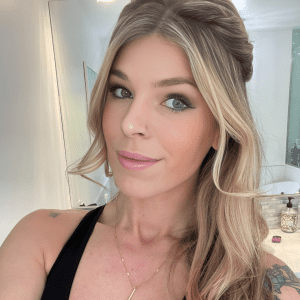Stuttering, often relegated to the periphery of public discourse, carries profound implications for those who experience it firsthand. As shared by Emily Anderson, a person who stutters, its weight is a constant presence in the lives of many. “Stuttering knows no social boundaries,” Emily emphasizes, “making it a universal issue irrespective of class, race, or intelligence.”
Traditionally associated with childhood development, stuttering can persist into adulthood, impacting communication in profound ways. Despite its prevalence, misconceptions persist, including the misguided belief that speech fluency correlates with intelligence. However, individuals like Emily Anderson, along with notable figures such as director Greta Gerwig and author Lewis Carroll, challenge these stereotypes, showcasing exceptional intellect and creativity despite their speech impediment.
“Personal narratives shape our understanding of stuttering,” Emily reflects, “highlighting the complexities of navigating life with a speech impediment.” From childhood speech classes to the challenges of adulthood, journeys like Emily’s are marked by both struggle and self-discovery. Yet, amidst the hardships, there exists a resilience that defies categorization. Stuttering, often viewed solely as a speech disorder, fails to capture the intricate tapestry of emotions and experiences that accompany it.
Indeed, the power of dialogue emerges as a transformative force in confronting the shame and stigma associated with stuttering. Through open conversation, individuals like Emily dismantle barriers and redefine societal norms, fostering a culture of acceptance and understanding. “By sharing our stories and embracing our differences,” Emily asserts, “we reclaim our voices and empower others to do the same.”
Emily’s journey towards acceptance began unexpectedly, with a chance encounter that unearthed buried memories of childhood struggles with stuttering. Reconnecting with a speech pathologist from her past served as a catalyst for self-reflection, prompting her to confront long-held beliefs about her speech impediment. In doing so, she discovered a newfound sense of agency, liberated from the shackles of shame and self-doubt.
“Today,” Emily declares, “I stand as a testament to the transformative power of dialogue.” By shedding light on the hidden corners of their experiences, individuals like her pave the way for acceptance and inclusion. “What was once a source of shame has become a wellspring of strength,” she concludes, “a testament to the resilience of the human spirit.”
As society continues to navigate the complexities of our shared humanity, let us embrace the power of dialogue to uplift and empower those whose voices have been silenced for too long. For in the richness of our diversity lies the true essence of our collective strength.

Contributing Writer: Emily Anderson
